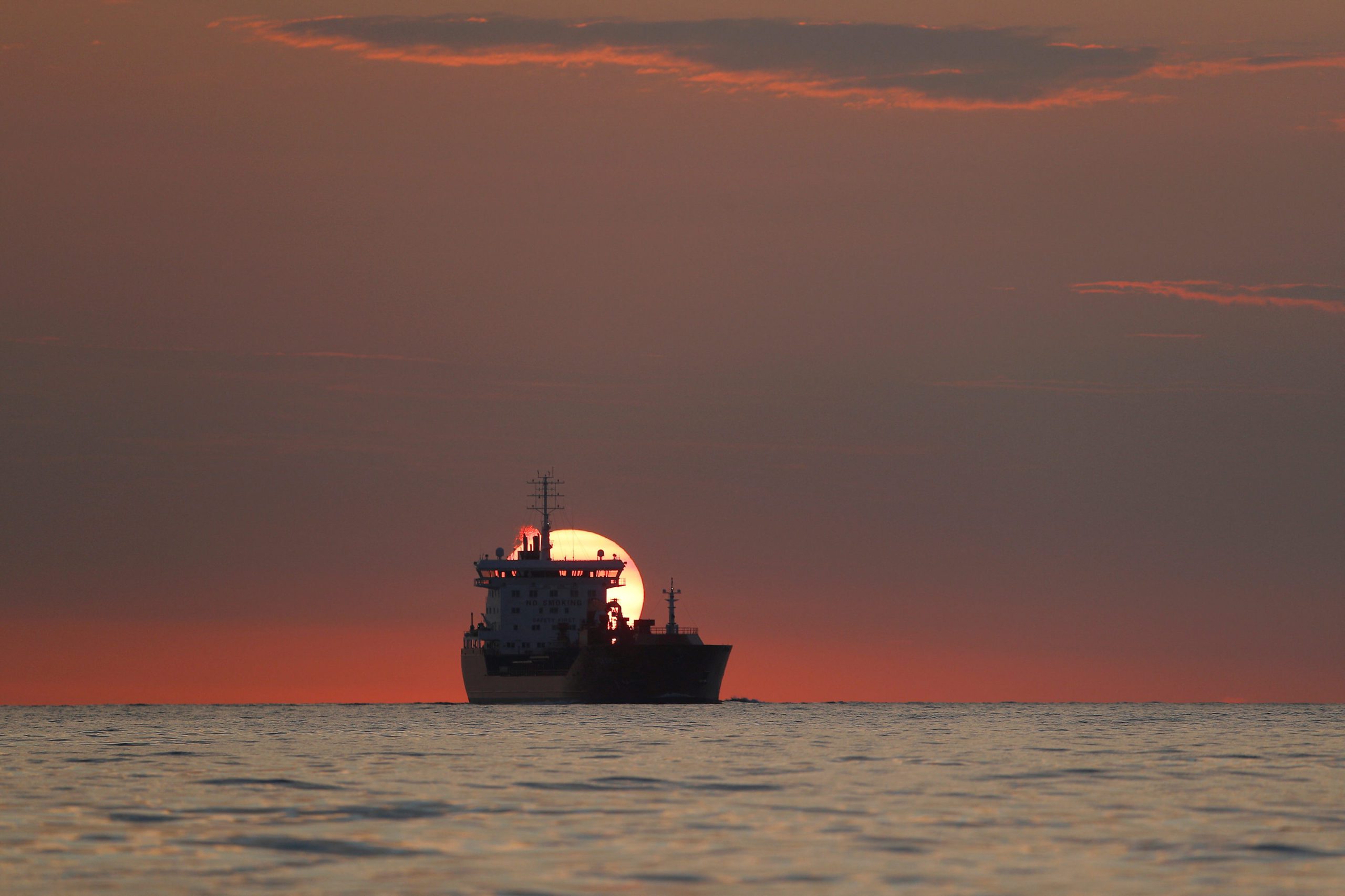China Claims Taiwanese Smuggling Ring Behind Subsea Cable Sabotage Case
Chinese authorities on Wednesday said two Taiwanese citizens led a smuggling operation involving a Chinese-crewed vessel that damaged subsea cables earlier this year.

A tanker ship is seen in the English Channel at sunrise, near Dover, Britain, August 4, 2021. REUTERS/Peter Nicholls/File Photo
The International Maritime Organization continued work on its Net-Zero Framework at working group talks in London this week, despite voting to postpone the framework’s adoption by one year just days earlier.
The NZF contains the world’s first global greenhouse gas pricing system for shipping, i.e. a carbon tax, designed to help the industry achieve its 2023 Revised Strategy goals of achieving net zero emissions by or around 2050. The framework’s carbon pricing revenues are expected to reach up to $15 billion annually from 2030.
The ISWG-GHG-20 meeting saw governments engage in discussions on the framework’s guidelines, a contrast to the chaotic negotiations the week before that led to the adoption delay.
Countries disagreed sharply on the role of biofuels in shipping’s transition. Brazil, Indonesia and several African countries pushed for a “technology neutral” approach favoring existing biofuel sources including food and feed stock like soy and palm oil. The EU and Pacific Island states opposed this position, citing sustainability and scalability concerns, and favored renewable e-fuels as a long-term solution.
Researchers, civil society groups and international campaigners have warned against using food and feed-based biofuels on environmental, climate and human rights grounds. Mexico, the UK and several Pacific Islands expressed support for addressing these concerns through Life Cycle Assessment guidelines that account for indirect land-use change emissions. The LCA guidelines are set to be finalized in April 2026.
Member states and industry expressed broad support for including wind propulsion as a zero- or near-zero energy source alongside solar and shore power.
Governments also discussed the IMO Net-Zero Fund, which experts say must be equitable to ensure climate-vulnerable countries are not left behind in the transition.
The US, Saudi Arabia and other oil-producing countries objected to further work on the guidelines, calling it premature until the NZF is adopted. Several delegates noted that these same countries had argued the previous week that the NZF could not be adopted due to missing policy clarifications.
Dr. Alison Shaw, IMO Policy Manager at T&E, said the framework’s success will depend on strong guidance that incentivizes green e-fuel production while safeguarding against unsustainable fuels like crop-based biofuels. “Many member states acknowledged the importance of both aims, though uncertainty over the framework’s eventual adoption remained a clear backdrop to discussions,” Shaw said.
Next Steps
The IMO will reconvene for technical working group talks from April 20-24, 2026, followed by the 84th session of the Marine Environment Protection Committee from April 27 to May 1.
MEPC 84 is planned to finalize decisions on clean energy under the NZF, including the LCA guidelines, which are essential for evaluating the environmental impact of marine fuels and determining vessels’ compliance with the framework.
Days after the IMO delay, more than 200 industry leaders gathered in Antwerp for the Global Maritime Forum Annual Summit, where participants reported feeling “hopeful and energised” despite the setback. IMO Secretary-General Arsenio Dominguez encouraged leaders to view the delay as a pause on adoption, not on the underlying work. “This extra year gives us the chance to connect with all the stakeholders and parties in order to address the questions that were raised, including the lack of clarity around the framework,” Dominguez said.

Sign up for gCaptain’s newsletter and never miss an update

Subscribe to gCaptain Daily and stay informed with the latest global maritime and offshore news
Essential news coupled with the finest maritime content sourced from across the globe.
Sign Up